 Petzlover
Petzlover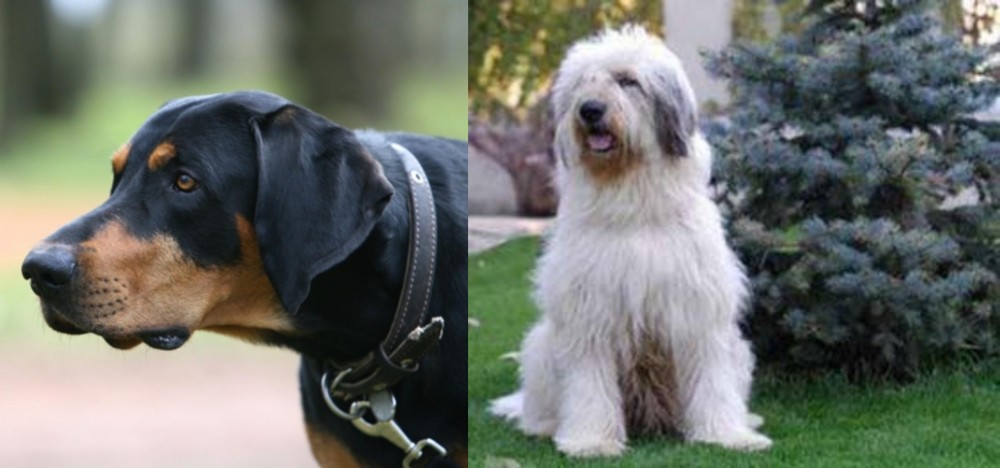 Lithuanian Hound is originated from Lithuania but Mioritic Sheepdog is originated from Romania. Lithuanian Hound may grow 14 cm / 5 inches shorter than Mioritic Sheepdog. Lithuanian Hound may weigh 28 kg / 61 pounds lesser than Mioritic Sheepdog. Both Lithuanian Hound and Mioritic Sheepdog has same life span. Lithuanian Hound may have more litter size than Mioritic Sheepdog. Lithuanian Hound requires Low Maintenance. But Mioritic Sheepdog requires Moderate Maintenance
Lithuanian Hound is originated from Lithuania but Mioritic Sheepdog is originated from Romania. Lithuanian Hound may grow 14 cm / 5 inches shorter than Mioritic Sheepdog. Lithuanian Hound may weigh 28 kg / 61 pounds lesser than Mioritic Sheepdog. Both Lithuanian Hound and Mioritic Sheepdog has same life span. Lithuanian Hound may have more litter size than Mioritic Sheepdog. Lithuanian Hound requires Low Maintenance. But Mioritic Sheepdog requires Moderate Maintenance
 This attractive dog hails from Lithuania.This is an old dog breed that has been used as a hunting dog.
This attractive dog hails from Lithuania.This is an old dog breed that has been used as a hunting dog.
It is believed that this dog dates way back to the 16th century and that it was developed from the mixing of hound breeds – Bloodhounds, Beagles, Polish Hounds and Russian Hounds.
The numbers of the dogs decreased and in the late 1970s, the Lithuanian Cytological Council developed a kennel facility for restoring Lithuanian Hound numbers, and a standard was also written. This breed is rare and is not usually found outside the Republic of Lithuania.
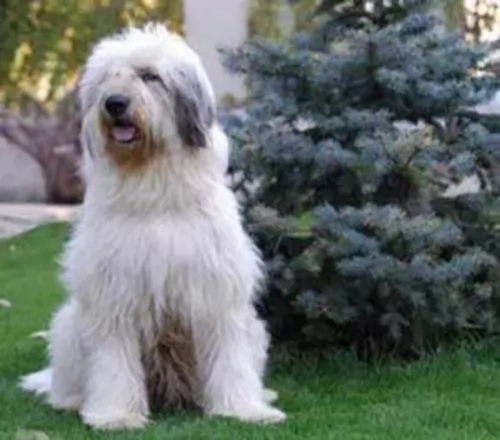 This is a large dog coming from the Carpathian mountain area of Romania.
This is a large dog coming from the Carpathian mountain area of Romania.
He has always been an excellent working dog, guarding and protecting sheep. Farmers always kept these dogs as working dogs, with no written records being kept about the development of the breed.
The breed is ancient, possibly dating back to ancient Roman times. It was in the 20th century that interest in the breed was ignited, and in 1981 the first official breed standard was recorded. The breed was also registered with the Federation Cynologique Internationale in 2005.
 The Lithuanian Hound is a medium-sized dog which stands at between 53 - 61 cm in height and weighs between 27 to 32kg.
The Lithuanian Hound is a medium-sized dog which stands at between 53 - 61 cm in height and weighs between 27 to 32kg.
He is a well proportioned, sturdy dog, heavily boned and muscular with straight, strong legs. The coat of the dog is short, smooth and essentially black with some tan markings. He has a large head, bright brown eyes, black nose, deep, broad chest and long, floppy ears with rounded tips. The tail of the dog is long and held low.
The attractive Lithuanian Hound is a sighthound known for his hunting skills which he does with great determination and stamina.
He loves going on the hunt and forms a strong bond with his hunting handler, being reserved with people he doesn’t know. Lithuanian Hounds are generally easy to train and are eager to please. Training and socialization will be easy with a dog like this as he is intelligent and keen to please.They respond well to an owner who is confident, fair, patient and consistent.
His attachment to the family makes him a good watchdog too. After the hunt, he becomes an amicable, friendly, loving dog, loving to spend a quiet evening with his human family. He is energetic and doesn’t take too kindly to sitting around for long periods. He loves to be on the go and will require a good deal of vigorous exercise.
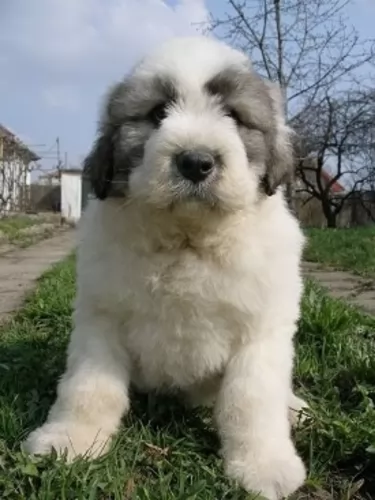 The Mioritic Sheepdog looks very much like the Old English Sheepdog with his huge body covered with long hair.
The Mioritic Sheepdog looks very much like the Old English Sheepdog with his huge body covered with long hair.
His head is also large with a black nose and smallish to medium length floppy ears. The color of the double coat is usually white, cream or pale gray, and sometimes you will find patches of these colors.
The tail has always been traditionally docked, otherwise the tail is left long with a slight curl at the end. The height of the dog is 65 to 75cm and he weighs roughly 50–60kg. Below the thick coat is a muscular dog with strong, straight legs which can help him become quite agile and speedy when needed. Allowed to breed, they can produce anything from 3 to 9 of the most adorable looking puppies.
The Mioritic Sheepdog is a balanced dog, loving to be with his owners but being wary of strangers. He is a brave dog, willing to guard his human family with his life.
He is also a strong-willed and dominant so it will be to his benefit to be trained and socialized so that he becomes obedient and easy to have around.Training won’t be difficult as he is an intelligent breed and already naturally obedient.
He is an energetic dog too so he will need to have regular exercise and games. He therefore gets on well with children in the home, loving to join in with all their games. He will need to be supervised around small children just because of his cumbersome, large size.
 The Lithuanian Hound has always been a dog used for hunting, so he wants to belong to a family where hunting is still practiced or where there is a large garden.
The Lithuanian Hound has always been a dog used for hunting, so he wants to belong to a family where hunting is still practiced or where there is a large garden.
He is smart and easy to train, and what’s more he’s a healthy, robust, low maintenance dog. He’s an amicable dog too, calm, independent and confident, and will make a splendid companion to his human family. He gets on well with children and is willing to share his space with other dogs too.
By choosing the Lithuanian Hound, you’re allowing a wonderful canine friend into your home and heart.
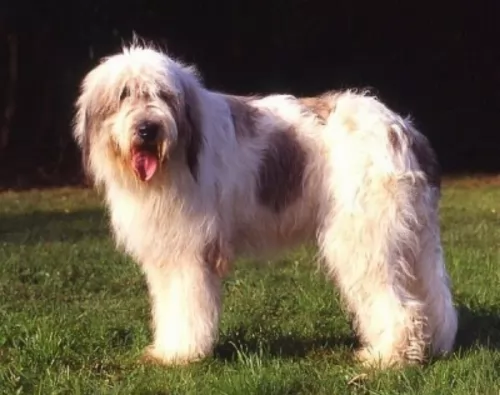 The Mioritic Shepherd has always been used to guard and protect livestock, but even though he has always taken this role seriously, he is calm and loving around his human family, making a splendid family pet.
The Mioritic Shepherd has always been used to guard and protect livestock, but even though he has always taken this role seriously, he is calm and loving around his human family, making a splendid family pet.
He also plays the role of guardian and protector of his human family seriously. He is a big strong dog and training and socialization will become necessary as he can become aggressive with certain people who he doesn’t trust.
Inviting one of these dogs into your home will ensure having a constant and loving companion at your side.
 Lithuanian Hounds can reach 12 – 14 years of age when they’re loved and well cared for. You won’t find many medical problems with this robust dog breed, but it pays to know some of the more common dog illnesses.
Lithuanian Hounds can reach 12 – 14 years of age when they’re loved and well cared for. You won’t find many medical problems with this robust dog breed, but it pays to know some of the more common dog illnesses.
This is a genetic condition that affects the hips and which can lead to painful arthritis. Dogs prone to hip and elbow dysplasia always benefit by avoiding obesity.
Deep chested dogs are more prone to Bloat, occurring when gas builds up in the stomach and can’t escape. This is a life threatening illness and immediate medical attention will be required.
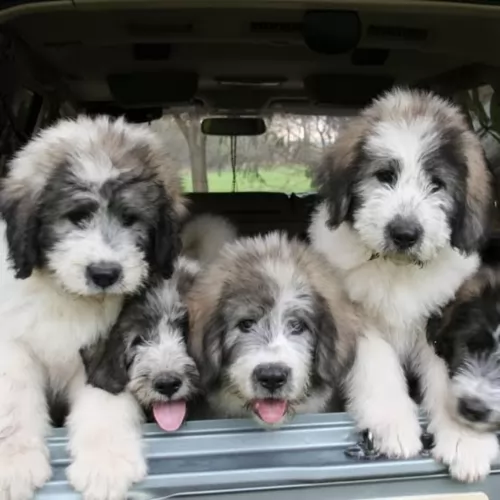 The Romanian Mioritic Shepherd Dog is a truly hardy dog breed and with good care such as good food and exercise can reach 14 years of age.
The Romanian Mioritic Shepherd Dog is a truly hardy dog breed and with good care such as good food and exercise can reach 14 years of age.
There are always some common dog illnesses to look out for and because he is a large dog, hip dysplasia can be a problem.
This is a disease where there is abnormal growth of the hip joints. Smooth movement of the joint is hindered and this leads to inflammation and pain.
At first you may find your dog limping and then you may find that after lying down, he battles to get up again. The joint becomes thickened with less mobility and the dog is reluctant to play like he used to. He will certainly need to get to the vet for treatments to make him more comfortable.
 This energetic dog is going to want a lot of exercise as he has always been a hunting dog. While a long, brisk walk will be excellent for him, he will want more activity than that. He’ll want to be included in all your activities – walks, hikes, camping trips and swimming.
This energetic dog is going to want a lot of exercise as he has always been a hunting dog. While a long, brisk walk will be excellent for him, he will want more activity than that. He’ll want to be included in all your activities – walks, hikes, camping trips and swimming.
A big positive with the beautiful, sleek Lithuanian Hound is that he is looked upon as a low maintenance dog. The short coat will require a good brush down twice a week.
He sheds a couple of times during the year. He’s the kind of dog who thrives on these grooming sessions and it’s a time to check him over for ticks and fleas as well as for odd lumps.
Look inside his ears too, particularly since he is a floppy eared dog. Open his mouth too and keep his teeth brushed and clean. There is special canine toothpaste and toothbrush for this purpose. Never try to use human toothpaste as it can be toxic for your dog.
There are a number of things to consider when it comes to feeding your dog, but it goes without saying that the best, most nutritious food will ensure health and longevity.
If you feed your pet commercially manufactured pet food, use the feeding guidelines found on the packaging labelling. With any new food types you give your dog, keep an eye on him for reactions.
Your dog’s metabolism and energy levels as well as his age will determine how much to feed him.
There are many excellent dog foods available – choose an excellent one and make sure to feed your dog some tasty, nutritious home-made food too.
You can’t go wrong with some cooked chicken, brown rice or pasta and some raw and cooked vegetables. Chop up and add to his dry kibble from time to time and he’ll be happy and healthy. Raw meat is expensive but try and include some every now and then as it contributes to allergy-free skins, bright eyes, shiny coats, wet noses and wagging tails.
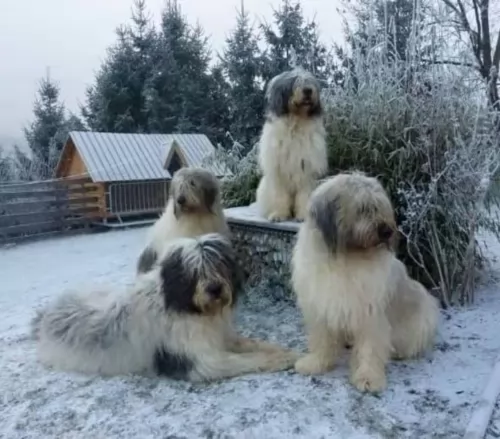 The Mioritic Sheepdog’s long hair is coarse and will need to be regularly brushed to keep it free of tangles. It will certainly need to be brushed 2 or 3 times a week, while some owners of this dog will prefer to have the coat professionally clipped. Because of the long hair, while brushing him it is an excellent time to check for ticks and fleas.
The Mioritic Sheepdog’s long hair is coarse and will need to be regularly brushed to keep it free of tangles. It will certainly need to be brushed 2 or 3 times a week, while some owners of this dog will prefer to have the coat professionally clipped. Because of the long hair, while brushing him it is an excellent time to check for ticks and fleas.
The food you give your pet plays such a critical role in his health and longevity. Always make sure that you’re giving your pet an uncomplicated diet to avoid stomach upsets.
Give him the best commercially manufactured kibble. To provide him with some variety, add in some boiled chicken, cooked vegetables such as potato, carrots and spinach to his kibble from time to time. He will also benefit greatly from having some raw meat added into the kibble occasionally.
Learn to know which human foods are totally toxic to him and avoid these. Make sure he is never without cool, fresh water.